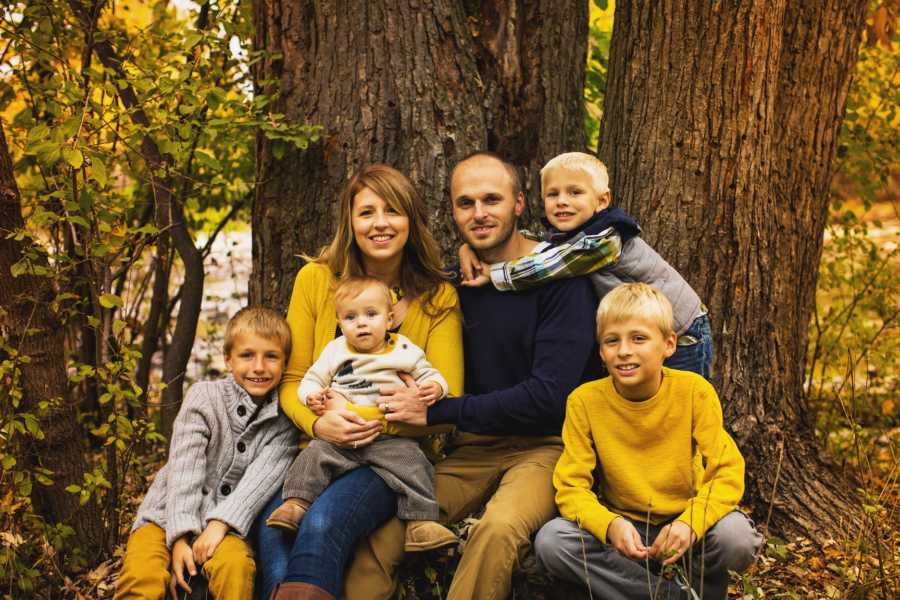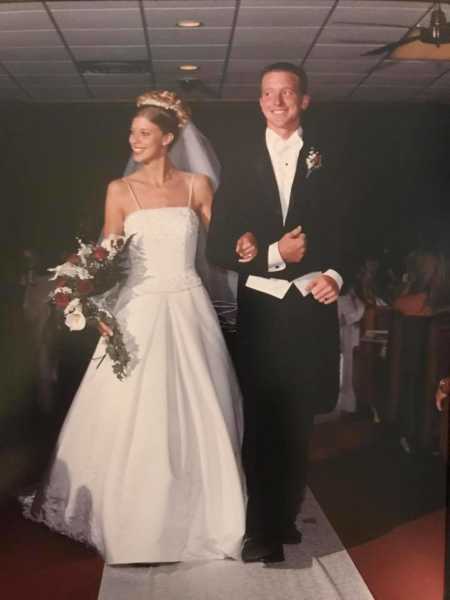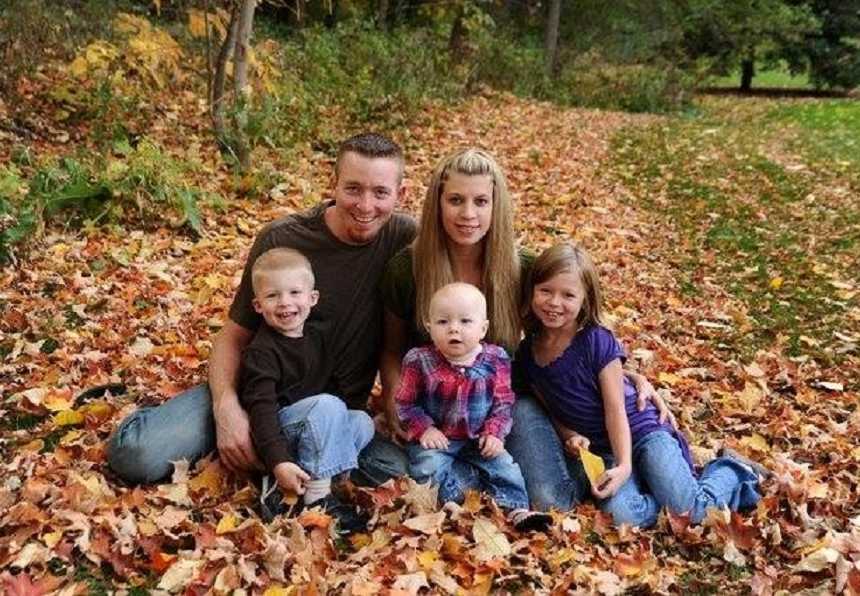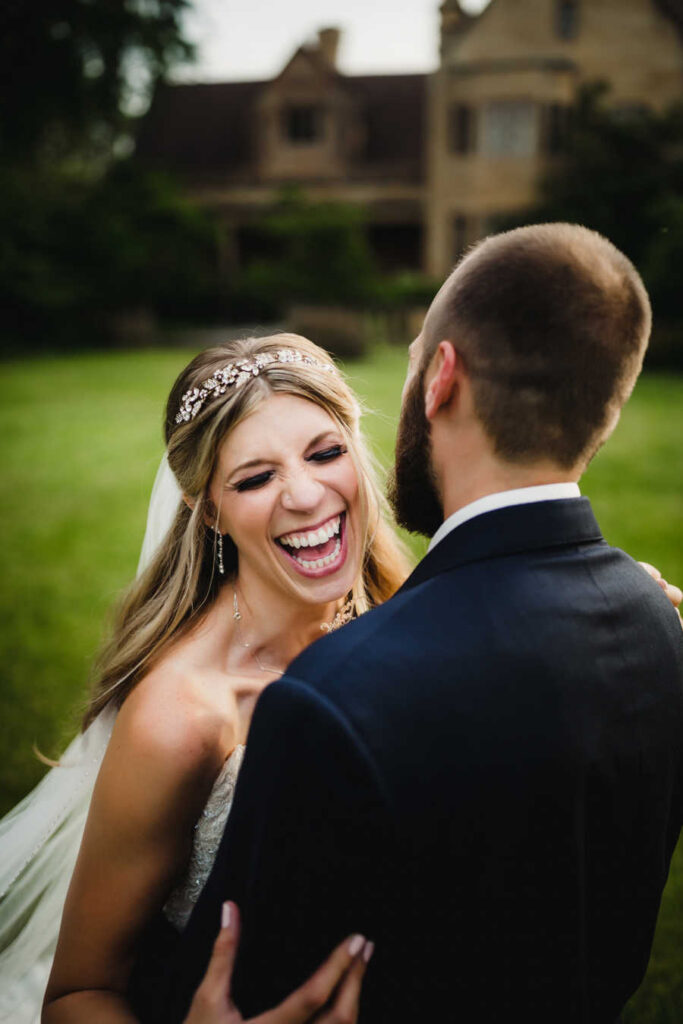“I’m not sure why I awoke that night. I looked over at her, who was sound asleep with her hair strewn across her pillow. Peaceful. Beautiful. It’s my wife.
Wendy and I were classmates in high school. Throughout college, we did the entire long-distance thing. I’m still baffled as to how our relationship managed to survive those days. Despite my flaws, she loved me. Despite the fact that I had caused her anguish. She showed me the meaning of unconditional love. Her altruistic personality would come to define her in the lives of people with whom she came into contact. She stood by me while I was on the verge of destroying my life with drinks and drugs. Grace, on the other hand, came into my life when I least expected it. At the age of 22, God drew my attention and I surrendered my life to Him. Everything had shifted. Wendy accepted my proposal two weeks later, and we married the following year.

Nearly 13 years later, I found myself in the same situation. It was a good life, and it was…comfortable. Our marriage was solid, if not flawless, but it could not have been any better. We’d been blessed with four wonderful children, all of whom were boys. Wendy was a healthy, energetic 36-year-old woman in her prime. We had recently moved into a new home, and it felt as if we were embarking on a new chapter in our lives, one that I was looking forward to seeing unfold.
After that, I heard her take a deep breath.
It sounded more like a gasp than a breath to me. ‘Wen, wake up,’ I decided, softly nudging her and saying her name. ‘Wen, the sweetie, get up.’

Nothing. I shook her and began yelling her name, begging her to wake up. There was, however, no reaction. My thoughts were torn between the reality of it all and the fantasy of it. I dialed 9-1-1 for assistance. There isn’t a pulse. Her respiration had come to a halt. Until aid arrived, I performed CPR. Sheriffs, EMTs, and a full team of strangers were in my bedroom trying to save her. Nothing seemed to be working. I noticed their expressions. I could feel her moving away from me, and I was fighting to keep my composure. They transported her to the hospital, where they were able to restart her heart, although she only regained consciousness for a few hours. Her heart stopped beating for the last time on March 17, 2017. She had vanished.
On that miserable morning, while riding home with my father from the hospital and watching the sleet smash the window, I looked down at my phone and noticed a message from my 11-year-old son.

‘Is Mom all right?’
I shattered. They had no idea how horrible things had gotten. I knew I was about to break all four of my sons’ hearts. Nothing would ever be the same for them, and nothing would ever be the same for them. Everything was in flux.
In a sleepless, nightmare-like haze, the days and weeks that followed blurred together. I had never seen anything like the outpouring of sympathy for my family. It was overwhelming to see so much affection focused at my boys and me. However, there is a sense of isolation that comes with such a loss. How many people have walked this path? How many people can connect to this? The permanence of death became a sobering reality three months later, as the dust settled and life seemed to go on around me. She wasn’t going to return. So many people reached out to me, sending me cards, notes, and texts… I lost track.

But this one stopped me in my tracks. It was just a simple word of support from someone I’d never met. The name linked to the message, not the message itself, drew my attention. Erin Stoffel is a writer. In 2015, practically everyone in this area had heard of the name. It was a name that conjured up a story so weighty, so awful, it was difficult to believe she’d experienced it…
When Erin met her husband Jon in high school, they were both passionately committed to their beliefs. They maintained their long-distance relationship while Jon attended Bible College in California. Erin, a year Jon’s junior, would join him there after graduation. When they married, she was only 19 years old.
They were a close-knit family of five about 13 years later. The faith of Erin and Jon pervaded every area of their lives, perhaps most visibly in their marriage. Jon, a 33-year-old carpenter, worked hard and honestly to support his family. Olivia, the eldest, was calm and sincere, mature beyond her eleven years. She was like a shadow, following Erin around like a small version of her mother.
After a long, dismal winter, May 3, 2015 was one of those magnificent spring days that begged to be savored outside. Jon, Erin, and their three children took a walk along the Trestle Trail Bridge, a 1600-foot pedestrian bridge in Menasha, Wisconsin, which was recently completed. There was a man standing next to another man slumped over on a bench as they approached the red pavilion at the bridge’s midpoint. Jon approached the man, seeking to figure out what was going on.
They were about to die.
The man pulled out a 9mm pistol and shot Jon in the chest without warning. He then turned the rifle on Erin and Olivia, 11 years old, and shot them each once. All three of them collapsed to the ground. Selah, Erin’s 5-year-old daughter, stood motionless beside her.
Run.
Erin rushed to her feet after being shot in the leg, gripping the hand of her daughter Selah. More rounds have been fired. As Erin reached her 7-year-old son Ezra, who was further forward, a bullet penetrated her abdomen, then another pierced her left hand. Erin pushed her two children down the bridge, eventually falling on the beach. Then the agony began. Sirens can be heard in the distance. Her mind was still processing what had just happened. Three bullet wounds have left him laying on the ground, bleeding profusely. Her stomach was in excruciating discomfort. The assailant is in the area. Her family had dispersed. There was only one thing she could be certain of in the midst of all the chaos and confusion. Everything was in flux.
On the Trestle Trail Bridge that day, Erin’s husband Jon, their daughter Olivia, and another innocent man were killed. None of the victims were known to the gunman. His apparent goals were to indiscriminately take lives, the last of which was his own. Erin was unable to talk when she awoke the next day in the hospital after many surgeries due to a breathing tube, but she was desperate to say something. She scribbled furiously on a blank sheet of paper that had been handed to her. Erin was attempting to relay her husband Jon’s final words as he confronted his assailant:
‘May God forgives you,’ says the narrator.
Individuals’ comments gave comfort and hope to those who had been affected by the tragedy, and they motivated many people to forgive. This incident made national news, and I recall how strange it seemed to hear my hometown, Menasha, mentioned in such a tale. This wasn’t planned to happen in this location. This was not intended to happen to this family. I recall joining thousands – if not millions – of others in praying for Erin and her family.
Erin Stoffel was reaching out to a stranger with a word of encouragement two years later. People had been telling her about my story, and she felt obligated to help. I could sense it as I read her text.
Hope.
The sensation was immediate, palpable, and genuine. I felt hope because I knew Erin’s story and that we both believed in Jesus. I knew I could make it if He could carry her through the tragedy she had experienced and lead her to a position where she was reaching out to help others.

She continued to pray for me every day, sending me encouraging texts, songs, and Bible verses. She was a ray of hope in a dark place, a lifeline while I fought to stay alive. I suddenly realized I wasn’t alone. I felt like I could relate to her and that I could ask her anything. I had a lot of questions for her. So many inquiries. These were unadulterated, often harrowing issues. Because of everything we had gone through, the connection felt effortless, natural, and deep.
A month later, we met in person for the first time at Lifest, a Christian music festival in Wisconsin. We walked and talked for hours, and I could sense the emergence of a special bond between us. Knowing her past and the horrors she’s been through, you’d think she’d be a sad, timid person. It didn’t take me long to know she wasn’t who she claimed to be. There’s a glint in her eyes, an underlying delight that you can’t ignore. She had changed as a result of her grief, but not in the way you might assume. We were pulled together by tragedy, but a relationship built solely on that foundation would not last. I recall her telling me, ‘You help me too, Steve.’ I saw that God was using us to assist one another in healing.

But there were more than two people involved in this. We were both troubled by the prospect of our children growing up without a mother or a father. The anguish you experience as a parent via your children can be the worst, the most heartbreaking. It broke my heart over and over to witness them try to live their lives, to navigate this new world. They were on their own. There just weren’t any peers in their lives who had suffered this type of loss…until everything changed. It’s difficult to put into words how we felt seeing all of our children together, seeing them sympathize, laugh, connect, and talk openly about their loss. They were able to find healing in each other, which was something we couldn’t provide as parents. The same natural bond that existed between us was also present between our children.

This was just more sign that our friendship had evolved into something more. Erin had become one of my most treasured possessions. A lovely young lady with lovely scars. A lovely heart scarred by unfathomable loss. With such a strong affinity and love, the way forward was obvious…

Erin and I married on June 28, 2018, one year after she sent me a simple text message. Every day, we enjoy the turmoil that comes with being part of an 8-person blended family. It’s lovely, it’s messy, it’s great, and it’s difficult. It’s a fact of life. Grief is an inevitable part of our lives, but it does not define us. It has the ability to take you in 1,000 different directions and down 1,000 separate roads, most of which are hazardous. Because it’s so often the easy option, the temptation to succumb to bitterness, regret, and isolation is tremendous. Erin, on the other hand, has taught me how to deal with sadness in an open and honest way. She taught me to appreciate the joys in life as they came, as well as the sorrows that always follow. We’ve chosen to be grateful for the loved ones we’ve lost, for the years we’ve had with them, and for a God who made it possible for us to see them again.


We’re not fine now that we’ve found each other. We’re fine because we know who He is. In this life, there will be things we don’t understand, but we must continue to trust that God is good – even when our world is coming apart. If there is no God, then none of this matters and life is nothing more than a cruel joke for those who are confronted with misfortune. If there is a God, though, our suffering is not in vain; it serves a purpose. There is reason to be optimistic. There is hope for recovery. Nothing can ever separate us from God’s love. Nothing.”
